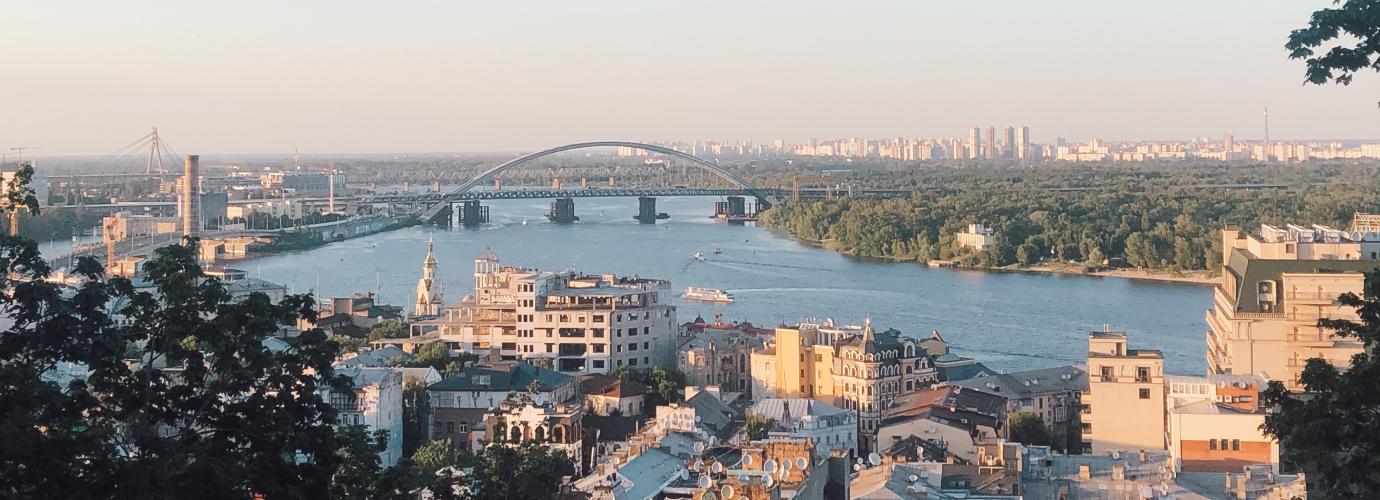Organisational variations and alternative structures in specialised secondary education
Learners in specialised secondary education can study in various forms according to the Law on Education (Закон України ‘Про освіту’). Institutional forms include full-time (day or evening), part-time, distance and networked learning. Individual forms include external, home (family-based) and pedagogical patronage. The Ministry of Education and Science of Ukraine (MESU) approves regulations on the forms of complete general secondary education.
Russia's military aggression in Ukraine has disrupted the education process, with air raids, power cuts, and internet outages. This led to the introduction of blended learning, combining face-to-face (full-time) and distance forms.
Educational institutions may offer any legally approved form if they have the necessary resources (e.g., technical, personnel, teaching materials or IT support). Institutions can also use networked learning to access additional resources (Лист Міністерства освіти і науки України ‘Щодо організації форм здобуття загальної середньої освіти’). Educational institutions may not unreasonably refuse to organise a certain form of education for learners. Article 9 of the Law on Education allows combining forms of education. Such an individual educational trajectory can be implemented through an individual curriculum.
Any form of education requires enrolment in an educational institution. Learners have the right to:
-
Access the infrastructure of the educational institution;
-
Receive a pupil card;
-
Expect compliance with educational standards and support from teaching staff in mastering the educational programme;
-
Access psychological, social and pedagogical support;
-
Undergo assessments of educational achievements and/or state final attestation;
-
Obtain a certificate/document on education.
Specialised institutions provide education for children who are talented in music, dance, art, sport or engineering. These include art, sports, military and scientific lyceums, as well as professional and art colleges. The Cabinet of Ministers of Ukraine approves regulations for specialised educational institutions on the basis of proposals from the MESU. These institutions must ensure that learners achieve the learning outcomes defined by relevant state and specialised educational standards.
Education of persons with SEN in specialised secondary education
The organisation of inclusive education in general secondary education institutions follows the relevant Procedure (Постанова Кабінету Міністрів України ‘Про затвердження Порядку організації інклюзивного навчання у закладах загальної середньої освіти’), approved by the Cabinet of Ministers of Ukraine.
According to the Letter of the MESU (Лист Міністерства освіти і науки України ‘Щодо організації форм здобуття загальної середньої освіти’), persons with SEN can access inclusive education by full-time (day, evening) or part-time form. Based on their health conditions, learners (or their parents or guardians) may also choose external, pedagogical patronage or distance form of education.
Persons with SEN may additionally study at specialised schools or training and rehabilitation centres. A specialised school provides general secondary education for persons with SEN due to intellectual disabilities, physical, and/or sensory impairments. A training and rehabilitation centre is a general education institution offering education to persons with SEN caused by complex developmental disabilities. Specialised general education institutions can operate at one or more levels of complete general secondary education.
Alternative structures in specialised secondary education
Ukraine has established 11 educational spaces under the state institution ‘School for Superheroes’. They operate to ensure the right to education for children undergoing in-patient treatment or rehabilitation in healthcare facilities. For this purpose, full-fledged and modern classrooms have been created in children's hospitals in regional centres of Ukraine. To organise the work of the ‘School for Superheroes’, the educational and methodological centre approved methodological recommendations for working with children with SEN. The Cabinet of Ministers of Ukraine has approved the procedure for providing educational services to children receiving early childhood or complete general secondary education while undergoing in-patient treatment or rehabilitation in healthcare institutions (Деякі питання забезпечення організації та надання освітніх послуг дітям, які перебувають на стаціонарному лікуванні або яким надається реабілітаційна допомога). In 2023, the total number of pupils enrolled in the ‘School for Superheroes’ was 10,161 persons.
Organisational variations and alternative structures in vocational education and training
Forms of vocational education and training (VET) and specialised secondary education in VET institutions include institutional, individual and dual forms (Наказ Міністерства освіти і науки України ‘Положення про інституційну та дуальну форми здобуття повної загальної середньої освіти’).
The institutional form includes full-time (day, evening), part-time, distance and network learning. The individual form includes external, home (family) education and pedagogical patronage (Наказ Міністертсва освіти і науки України ‘Положення про індивідуальну форму здобуття повної загальної середньої освіти’).
Due to the full-scale military aggression of the Russian Federation against Ukraine and its consequences, it has become necessary to combine different forms of education at all levels. For instance, the MESU recommends the use of distance learning for theoretical studies and practical training (including on-the-job training and internships) through workshops, laboratories and training sites in enterprises. Where traditional methods are not feasible, learners may use distance learning or facilities of other institutions, including those located in different regions (Лист Міністерства освіти і науки України ‘Про організацію освітнього процесу у закладах професійної (професійно-технічної) освіти у 2023/2024 навчальному році’).
Education of persons with SENin VET
For persons with SEN, the working curricula of VET institutions determines the content and scope of the educational and production process and the duration of training. If necessary, these curricula adapt for obtaining knowledge, skills and abilities in accordance with the individual curriculum and individual development programme (Постанова Кабінету Міністрів України ‘Порядок організації інклюзивного навчання у закладах професійної (професійно-технічної) освіти’).
Alternative structures in VET
To meet the needs of juveniles sentenced to imprisonment in acquiring VET and mastering professions that match their interests, abilities and health conditions, the MESU and the Ministry of Justice of Ukraine established vocational schools at special educational institutions. These schools operate as state institutions providing vocational education at the second certification level. Their activities are regulated by the relevant provisions. Such institutions include training centres in closed-type penal institutions, vocational schools for social rehabilitation, and vocational schools within special educational institutions.

